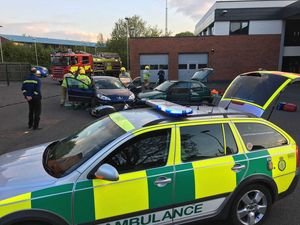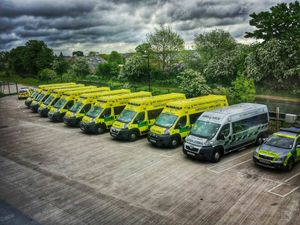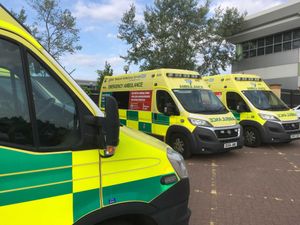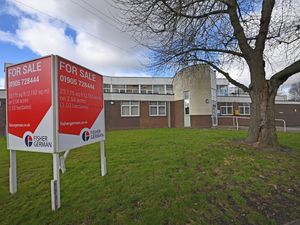Staffordshire first responders 'cannot use blue lights' in shake-up
First responders in Staffordshire are being stripped of their blue lights and will no longer be able to carry certain drugs as part of a revamp of the service.

Community First Responders (CFRs) are set to be impacted by the move, which has been signed off by bosses at West Midlands Ambulance Service.
Critics say the changes could have devastating consequences, with CFRs unable to reach patients on time, although WMAS bosses say the move is part of several changes which will see responders trained to a new qualification that will "protect patients". A spokesman said: “Their primary focus is on saving the lives of patients who suffer from a cardiac arrest or heart attack and these changes will only increase their ability to do that.”
Mark Walker, the group co-ordinator for Lichfield Trent Valley CFRs, said: "This is a huge backwards step and has the potential to be life-threatening."
The CFR scheme, features volunteers who respond to 999 calls in their communities and provide emergency treatment and basic life support.
In the former Staffordshire Ambulance Service area, around 10 per cent of responders are classed as 'enhanced', meaning they are trained to use vehicles fitted with blue lights which enable them to get to destinations in the county more quickly.
They are also equipped with and trained to administer drugs including Salbutamol, which helps people with breathing problems, as well as treatments that can assist patients who have suffered problems including cardiac arrest.

CFRs will be stripped of both privileges from April 1.
Mr Walker, who launched the Lichfield Trent Valley CFR service in 2011, said: "The result of these changes is that those of us who are enhanced responders will not be able to use the blue lights or administer drugs. This will drastically reduce the standard of service we can offer.
"Undoubtedly some of us will be considering our futures."

West Midlands Ambulance Service spokeswoman Jordan Eggington said the new training would "enhance the role that volunteer community first responders play within the community".
“It also means that all CFRs in the West Midlands will be trained to the same level by the Trust’s Education and Training team, based at the National Ambulance Training Academy in Brierley Hill, the only education centre of its kind to be rated Good by Ofsted," she added.
“The changes will not only protect patients with the enhanced clinical governance arrangement but will ensure CFRs are also protected through the qualification and training improvements.
“The move coincides with new legislation which stipulates that CFRs are no longer able to use blue lights and sirens, and must all use specific livery on their vehicles. The Trust will be assisting schemes who need to change the livery on their vehicles.
“The regulated national qualification will mean that all CFRs within the Midlands operate to the same level in the use of drugs.
“Less than 10 per cent of our CFRs will be affected by the changes to use of blue lights and clinical practice.
“CFRs are an incredible valuable resource for West Midlands Ambulance Service and they all do a fantastic job for the communities in which they serve.
“Their primary focus is on saving the lives of patients who suffer from a cardiac arrest or heart attack and these changes will only increase their ability to do that.”





